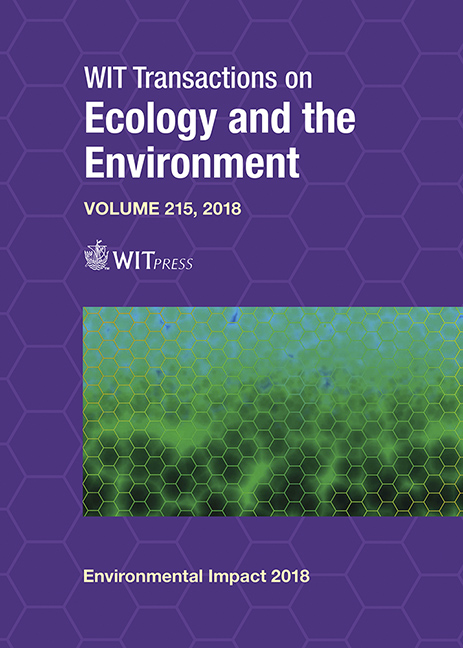ENVIRONMENTAL SUSTAINABILITY AND QUALITY OF LIFE: IMPLICATIONS FOR PSYCHOLOGICAL INTERVENTIONS
Price
Free (open access)
Transaction
Volume
215
Pages
12
Page Range
311 - 322
Published
2018
Paper DOI
10.2495/EID180281
Copyright
WIT Press
Author(s)
IRINA G. MALKINA-PYKH, YURI A. PYKH
Abstract
The results of the previous stage of our study of the associations between quality of life (defined as subjective well-being (SWB)) and environmental sustainability revealed that: 1) objective well-being may be compatible with environmental sustainability, often due to synergies arising in terms of reduced pollution and health benefits; 2) well-being and environmental sustainability may be incompatible with one another if well-being is defined as the satisfaction of preferences, psychological well-being, and/or SWB; 3) people with significantly different levels of consumption satisfaction also had significantly different levels of SWB as well as of all other personality variables under consideration. Thus, we hypothesize that it is possible that unhappiness motivates people to focus on material wealth. People who strive for money and goods might suffer from underlying feeling of insecurity. Recent research suggests that happiness can, to some degree, be changed. The first aim of the curren study is to present the psychological intervention (rhythmic-movement therapy) for increasing SWB in general and consumption satisfaction levels in particular. The second aim of our study was to propose generalized multiplicative model (GMultM) for assessing outcome of rhythmic movement therapy. The study was conducted in the framework of Mental Health Management Program organised in the “Human Ecology” department of the Research Center for Interdisciplinary Environmental Cooperation of Russian Academy of Sciences, St. Petersburg, Russia. The results of our study revealed that psychological intervention can be regarded as powerful tool to help participants to shift to more intrinsic goals, reduce materialistic tendencies and thus potentially increase pro-environmental behaviour.
Keywords
quality of life, subjective well-being (SWB), environmental sustainability, personality variables, psychological interventions, generalized multiplicative model (GMultM)





